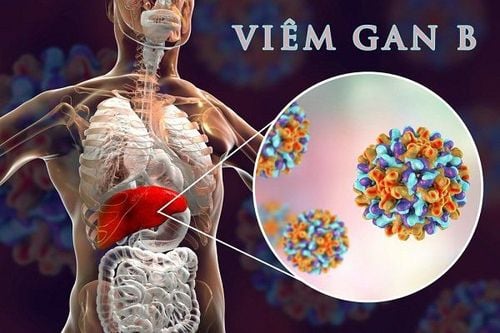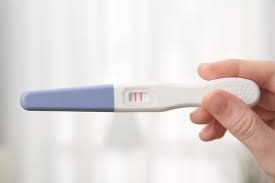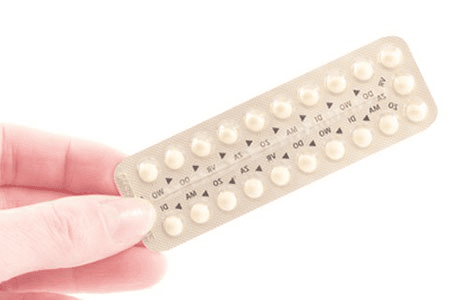This is an automatically translated article.
The best way to take care of women's sexual and reproductive health is to be more proactive, listen to their body and not ignore even the smallest signs when there is a problem because they can signal a more serious problem. Protect your reproductive and sexual health with important precautions as mentioned below.
1. Immediate treatment of sexually transmitted diseases
In recent times, an unhealthy lifestyle has greatly affected human reproduction as having unprotected sex with many partners can increase the risk of many types of STIs sex. Sexually transmitted diseases come with many risks, one of which is infertility.
Each year in the United States 19 million people become victims of sexually transmitted diseases; however, there are some things you can do to reduce your risk of infection. The most important step you can take to avoid catching an STI is to be aware of what it is and how it's spread.
In case of any disease, it is very important to know how it works and to be more aware of the risk factors to protect yourself from getting the disease in the first place. The same goes for sexually transmitted infections, if you feel like you've been exposed or are experiencing symptoms of the disease, it's important to get tested to protect yourself and your partner. .
Sometimes, some types of STIs don't show any symptoms; in that case, again, testing is the only way to confirm if you really have the disease. It is important to be actively tested and screened regularly to protect yourself from infection.
2. Do not use or quit smoking
Smoking not only affects a person's overall health, but can also affect the reproductive health of the person. In most cases of people who have problems with infertility, smoking is considered one of the most common contributing factors to that problem. Quitting smoking can bring many positive changes to your health, and it can also help you conceive.
In women, smoking 10 to 20 cigarettes a day can increase levels of FSH or the hormone LH, affect the normal functioning of the menstrual cycle, and reduce egg counts. In some cases, it also causes infertility problems and can even trigger the onset of early menopause.

Phụ nữ chăm sóc sức khỏe sinh sản cần tránh sử dụng thuốc lá
3. Use safe birth control
For a healthier baby, a happier mom and a family, it's important to plan your pregnancy. In the United States, up to 49% of pregnancies are unplanned. Today, there are many options available for contraception, which can help you decide when to get pregnant.
For those who are looking for a long-term option, IUDs are a great option, these can last for years and when you decide you want to get pregnant you can remove them. these IUDs. In addition to the IUD, there are other methods of birth control, like the Pill and the condom. Birth control pills are not helpful at all in preventing yourself from getting a sexually transmitted infection. In that case, using a condom would be an effective option for both parties.
4. Weight control
Underweight or overweight, both unduly affect the chances of getting pregnant. In women, being overweight or underweight affects ovulation, and it also increases the risk of miscarriage. So, to easily conceive and give birth to a healthy baby, both men and women need to maintain a healthy body weight.
5. Take care of your health
To maintain your reproductive health, it is important to be more proactive and go for regular medical check-ups. Some serious problems such as uterine, cervical, and prostate cancers can be effectively treated if they are found early. That's why it's important to have regular check-ups even when everything is normal, because sometimes symptoms take a long time to appear. It can be very difficult to treat the disease if it has progressed to an advanced stage.
Both before pregnancy and during pregnancy, drinking alcohol can be very dangerous. Women who are trying to get pregnant drinking alcohol can be a major obstacle in conceiving, if they do get pregnant there is a higher chance of miscarriage and the baby being born with birth defects. In men, drinking alcohol can decrease sperm volume, and it also affects sperm motility. Women who drink alcohol while pregnant increase the risk of passing alcohol on to their unborn baby, which can cause the baby to be born with serious birth defects.
Couples who are trying to conceive in addition to limiting alcohol consumption, smoking and having regular tests can also use some supplements that can help increase the chances of pregnancy. Women can take a prenatal DHA or omega-3 fatty acid supplement along with 800 mg of folic acid on a regular basis. Men can take a multivitamin and Coenzyme Q10, an antioxidant, to reduce the risk of sperm damage.

Chăm sóc sức khỏe sinh sản cho bản thân bằng cách bổ sung các hợp chất cần thiết
Whole grains and foods rich in fiber Clean fruits and vegetables Omega-3 fatty acids Plant protein sources Foods not to eat while trying trying to conceive:
Processed foods Avoid caffeine To maintain the health of your reproductive organs, it's important to be proactive and get regular checkups even if you don't have any problems. In addition, it is important to maintain a healthy lifestyle and consume organic and plant-based foods more often.
Currently, Vinmec has deployed the Basic Gynecological Examination and Screening Package. This examination package can detect inflammatory diseases early, making treatment easy and inexpensive. When registering for the Basic Gynecological Examination and Screening Package, customers will receive:
Gynecological examination. Transvaginal ultrasound of the uterus and ovaries. Bilateral breast ultrasound. Tests such as: Treponema pallidum rapid test, Chlamydia rapid test, taking samples for cervical-vaginal cytology, bacterioscopic staining (female vaginal fluid), HPV genotype PCR automated system, total analysis Automated urine collection.
Please dial HOTLINE for more information or register for an appointment HERE. Download MyVinmec app to make appointments faster and to manage your bookings easily.













